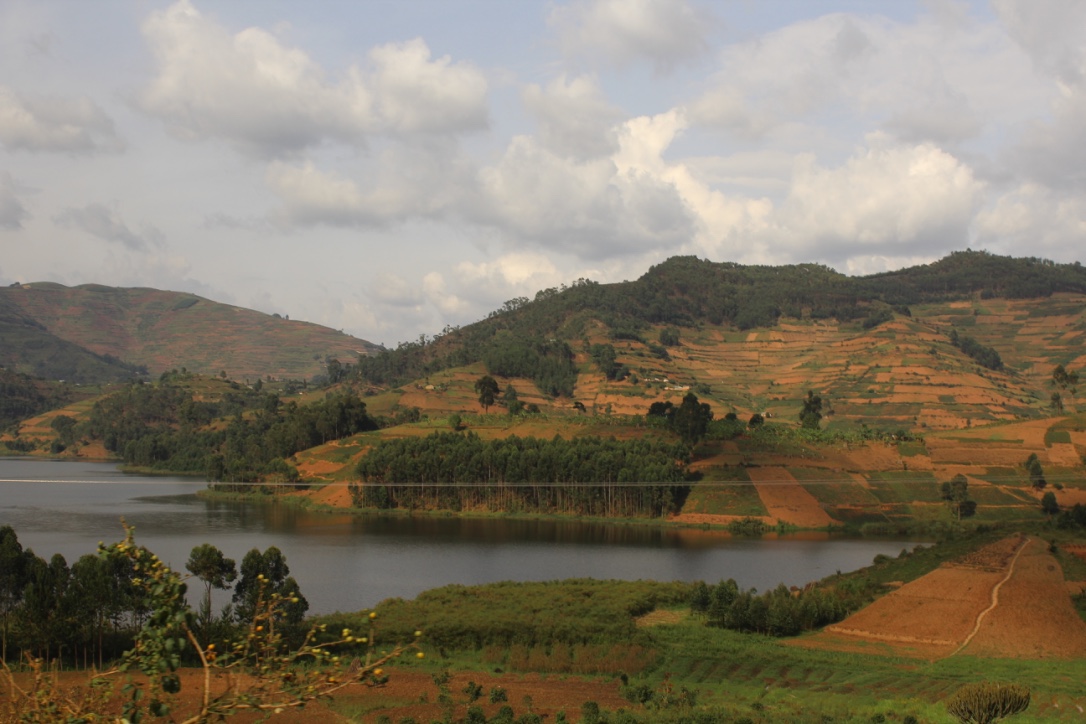Introduction

Issues of ecological sustainability, systems resilience and thrivability of populations continue to occupy a prominent position in the global development discourse of tropical regions particularly in Sub Saharan Africa (SSA). The dominant narrative paints a dismal picture in SSA and avers that ecological systems are increasingly undergoing enormous degradative linked to natural and human induced processes with adverse implications on the thrivability of populations whose livelihoods are strongly linked to environment and natural resources.
Feedbacks through increasing intensity and magnitude of natural hazards, stagnant or declining agricultural yields exemplify the magnitude of the current situation. These have been compounded by climate change with new scientific information pointing to 50C, increasing climate variability, high demographic changes that outstrip planning. A strong desire however exists in addressing the issues as seen in the tenets of the Global Development Agenda 2030 and the Africa Union Agenda 2063.
The thrust of the United Nations Global Development Agenda (2030) and its attendant Sustainable Development Goals (SDGs) is transformative development which does not compromise the ecological integrity. Accordingly, SDG 15 vouches for “protection, restoration and promotion of sustainable use of terrestrial ecosystems, sustainably manage forests, combat desertification, and halt and reverse land degradation and halt biodiversity loss”. However, emerging evidence premised on tracking over the last three years overly reveals stagnant or suboptimal progress towards realization of SDGs in SSA with a myriad of complex challenges. The paucity of indicator data currently at only 40%, inadequate integration and the delicate tradeoff between ecological security and economic wellbeing are implicated as some of the constraining factors.
Adoption of Landscape Ecology principles as a vital scientific foundation and framework for sustainable land use planning and natural resource management in African Countries. Landscape ecology is well positioned to become the scientific basis for sustainable development to harness ecosystem services for a sustainable livelihood. In African countries, there are increasing concerns about how the current rate of human activities, urban development and climate change may impact the resilience and capacity of the natural environment to provide essential ecosystems services such as food and water; energy security; flood and disease control; and nutrient cycling. Landscape ecology principles such as spatial and temporal scales are vital to effective analyses and modelling of ecosystem dynamics, and how these affect their provisioning of essential services to sustain human livelihood. Landscape ecology science an integrative tool “applicable to real landscape situations and applying them in solving problems.”
Maintenance of ecological resilience and thrivability of well-being in the face of changing environmental, demographic and socioeconomic conditions in SSA remains a complex challenge in the science and policy domains. How do we catalyze accelerated knowledge creation to resolve these complex challenges in the context of tropical socioecological systems in SSA? What ecological indicators are adaptive and appropriate for tropical SSA systems under changing conditions? What is the level of socio-ecological integration required for sustainability? What are the thresholds of tradeoff for ecological security? What policy and governance regimes are required for sustained ecological security and societal thrivability? Emerging knowledge is landscape ecology science posits a huge potential to resolve these fundamental questions through geographical explicitly, integrative capability, contextual and dimensional analytics. The planned collaborative summer schools thus springs from the desire for knowledge creation and scholarship development to effectively contribute to addressing the foregoing challenges in SSA.
Justification and Relevancy of the topic to Africa
Tropical Africa is hugely highly vulnerable to the contemporary issues of climate change, land use change and natural resource degradation. However, the region also shows tenets and prospects of potential thrivability and resilience manifesting through high annual economic growth rates. Africa experienced a remarkable annual economic growth of 4.5% over two decades with implications on substantial improvement in peoples wellbeing. (Beegle et al., 2016).
Owing to its inter-disciplinarity and multi-disciplinarity domains and its relevancy in science, policy, practice, development and societal, landscape ecology posits a huge potential to contribute to the integrated achievement of SDGs in Africa, as well as the African Union (AU) Development Agenda 2063. But this potential has not been fully harnessed almost in all domains. Whilst African countries are committed to integrating SDGs in their national development aspirations, recent reports (Diaz-Sarachaga et al., 2018; Lafortune et al., 2018) reveal that African countries are lagging behind the rest of the world in terms of achievements on SDGs. The reasons underpinning this situation are many but noticeably, paucity of data, inadequate capacities and poor partnerships account for significant proportions. From the science perspective, the contribution of African countries to the global scientific output via publications stands at about 1-3% (Duermeijer et al., 2018; Schemm, 2013), which is dismally low.
The vitality of the summer school topic also manifests in the fact that the people’s livelihoods and economies of African countries are strongly linked to ecological resources. The summer school intends to revitalize the achievement of the SDGs and AU agenda 2063 with a lens on harnessing landscape ecology. By jointly addressing interface, nexus and complexity issues on environment and natural resources issues seeks to cultivate an elevated path to sustainability. Moreover, there is novelty and value addition for sustainability in a joint engagement of scientists, practitioners, policy and society which is the model to be implemented in the summer school. We will work with science, policy, practitioners to weave solutions that are applicable to scale and to society.